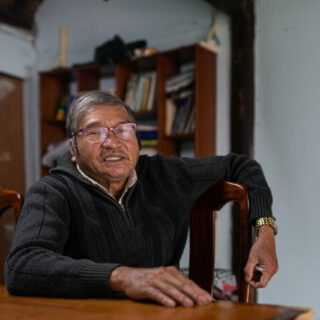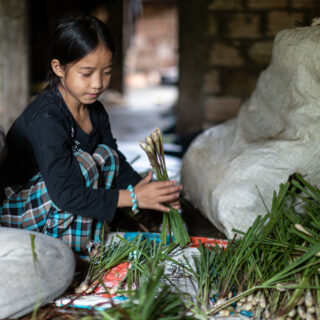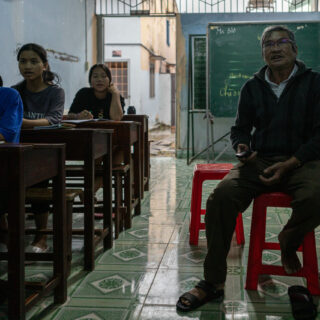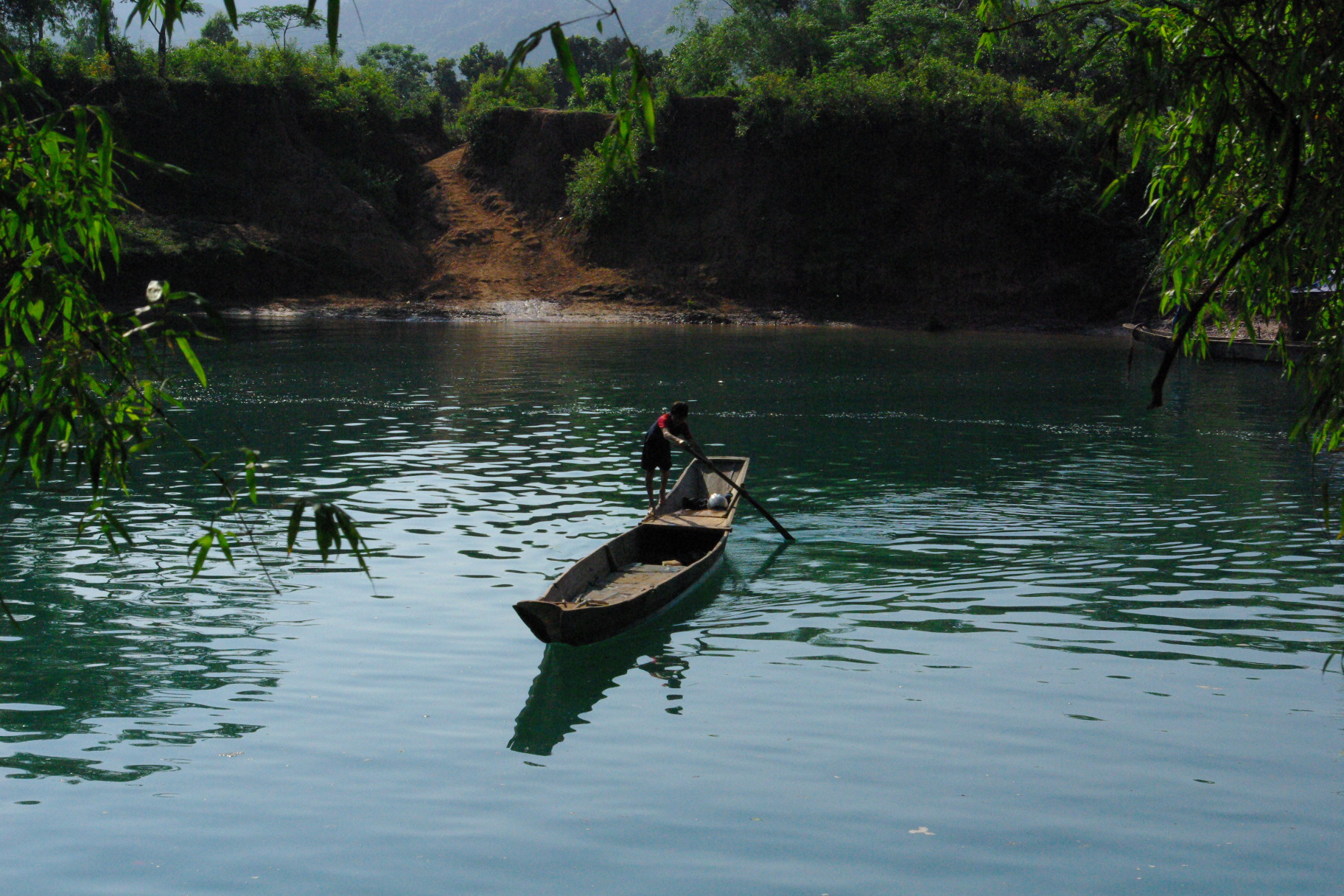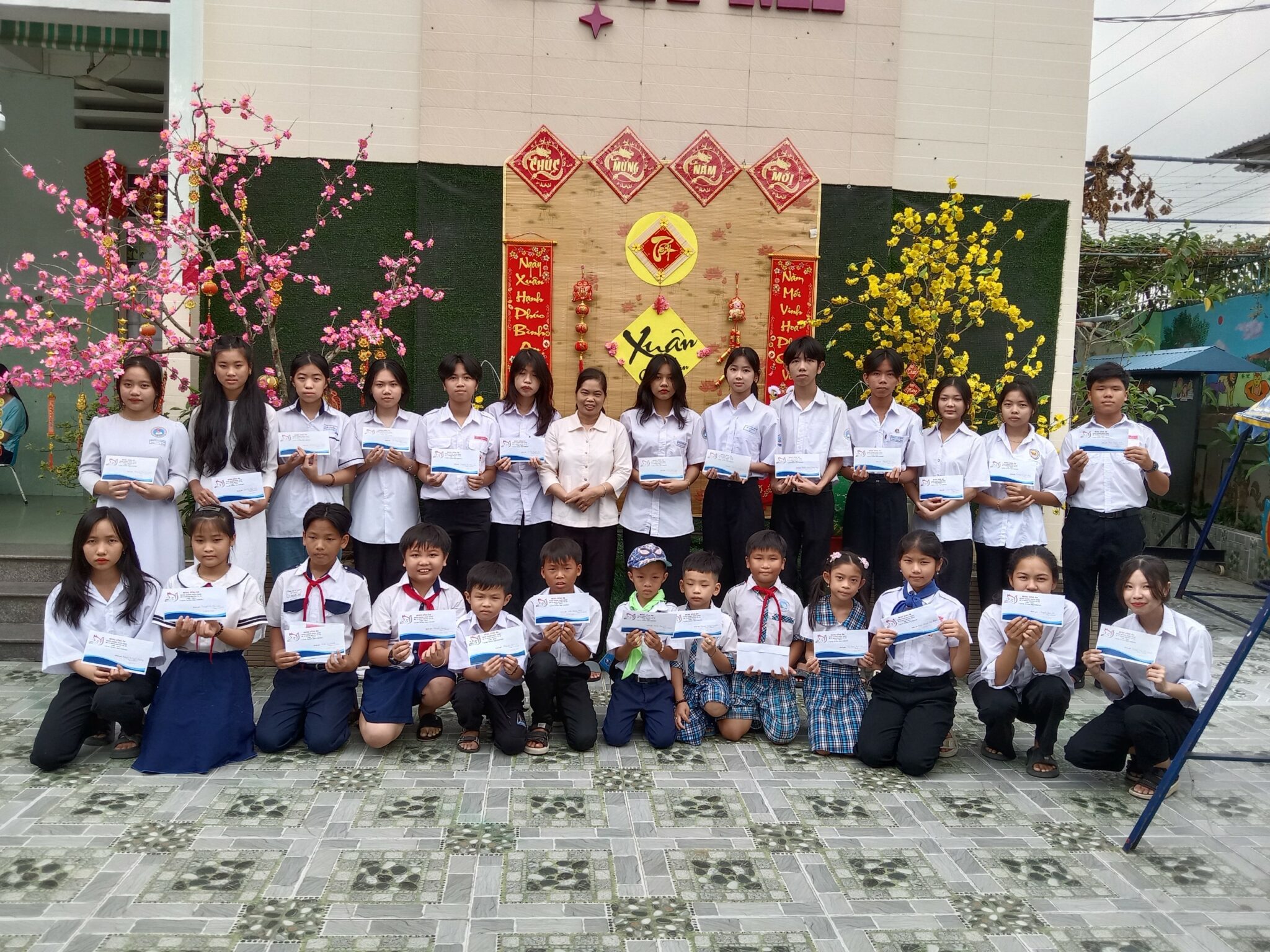
The Lesson of Mr. Tuan in Vietnam
In the central highlands of Vietnam, certain encounters lead to great lessons in humanity. This is the case with Mr. Tuan, as humble as he is generous.
In the flooded streets of a village, a stout little man covered in a large plastic poncho faces the torrential afternoon rain. That is Mr. Tuan. He walks past a building that stands out against the cloudy sky and crosses a courtyard. He stops his motorcycle, exchanges a few friendly words, and enters a small classroom. He is soon joined by about fifteen cheerful young students. They have come for a free English lesson.
TEXT: VICTOIRE BUREAU – PHOTOS: ANTOINE BESSON
MR. TUAN
Taking care of the poor is not just a matter for the wealthy, and Mr. Tuan is a perfect example of this. For years, he has been involved in various actions to help underprivileged children in the Central Highlands of Vietnam.
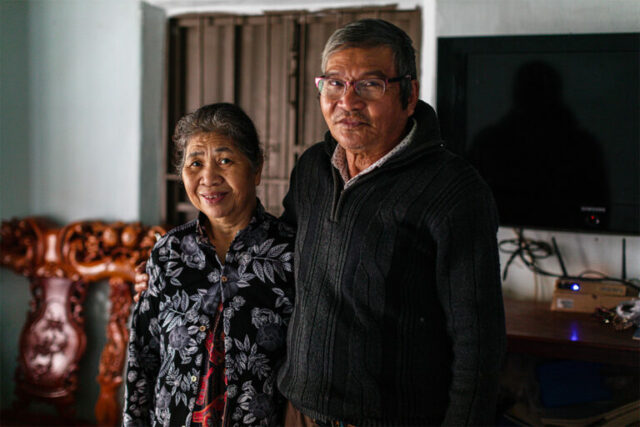
The Central Highlands is an underdeveloped ethnic region and a site of intense conflict during the war between the North and the South, which left numerous scars in the region. Even today, the area is closely monitored by the police, fearing any potential political dissent. However, Mr. Tuan no longer involves himself in politics.
Coming from a family of eight children, with himself being the third, he lost six siblings, mainly to illnesses or accidents. He is all too familiar with the hardships of a life without resources and education. He was twelve years old when his father was assassinated during war, plunging his family into extreme poverty. Later, his younger sister drowned at the age of fifteen because she didn’t know how to swim. Tragedies spared no one, including Mr. Tuan, who always wears a friendly smile. His only inheritance is the house built by his father, which he still lives in today, the last wooden house in the neighborhood, susceptible to termites and leaks during the rainy season.
HELPING IMPOVERISHED CHILDREN
He is all too familiar with the hardships of a life without resources and education. Perhaps it is his past that has given Mr. Tuan the natural intelligence he employs in the service of sponsorship.
Just ten minutes away from his home, the old man enters a small house made of bricks and metal sheets. A pleasant scent of lemongrass wafts from the earthen floor. A little girl sits on the ground doing her homework. She looks up with gleaming eyes and smiles at the man who could be her grandfather. Her name is Y’Nen, and she is ten years old. Thanks to Mr. Tuan, she has a sponsor.
For Children of the Mekong, Mr. Tuan identifies children in need of support, handles the distribution of sponsorships, and follows up with the sponsored children throughout the year. One must witness him in action in the villages, among the families and children. Patient and attentive, he asks relevant questions to understand the needs of the “mountain people“. This is how the Kinh, the majority ethnic group in Vietnam, refers to the ethnic minorities in the highlands.
“Seeing these children have good jobs to help their families makes me very happy,” Mr. Tuan exclaims. On his motorcycle, despite being 73 years old, he tirelessly travels kilometres to be with the poorest families. With Children of the Mekong, he has found a way to help them to the best of his abilities. Behind the loud voices, there is immense gratitude and a sense of indebtedness.
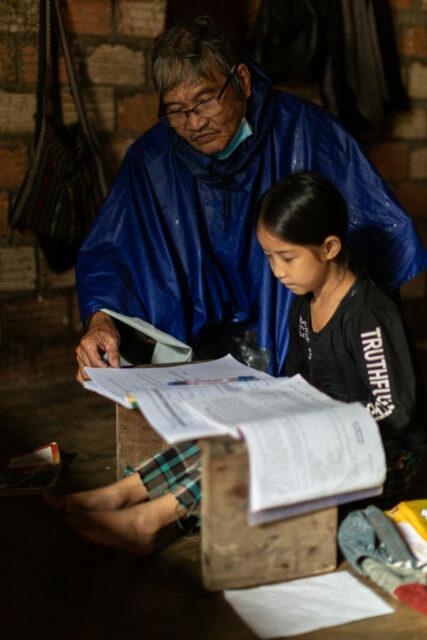
A CHILDHOOD IN WAR
Because he, too, was once one of those children. After his father’s death, Mr. Tuan was sponsored by a Frenchman who provided him with the means to go to school. In college, he learned French and English, which he still speaks fluently.
Another inheritance that would change his life. “When I was young, I was as poor as they are. But I had my French sponsor who helped me a lot by paying for my school fees. Now, I feel that I must repay my debt. I am very happy to be able to help other children in return. I still see many mountainous children who are very poor. The education of children will improve the living conditions of families over several generations.
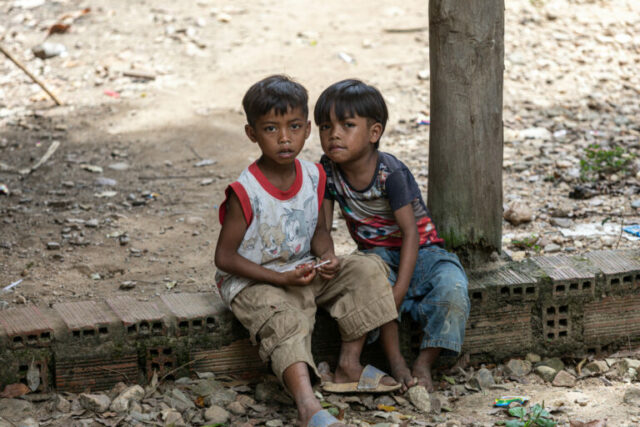
“I know that Children of the Mekong helps them so that they can have a good life and go to school. That’s why I want to cooperate with the sponsors.” And to do so, Mr. Tuan devotes all his time and expertise as a program coordinator and interpreter for Children of the Mekong.
On his work table, behind shelves burdened with heavy dictionaries, he also translates letters from the sponsored children from Vietnamese to French. He recalls, “At my home, there was no electricity. I worked hard because I knew that school was my only chance for a future.” In fact, it was school, and especially his mastery of languages, that allowed him, during the 1969 mobilisation in the Army of the Republic of South Vietnam to fight against the Communists of Ho Chi Minh, to become an officer and serve as an interpreter for the American army. In 1975, when the South surrendered, he was captured and sent to the army’s re-education camps for two and a half years. Modestly, he says, “I was often hungry and scared.”
Upon his release, Mr. Tuan, who believed he would finally see the end of his misfortunes, discovered that his military background led to the loss of his nationality and a ban on holding any government position. The man who dreamt of becoming a teacher ended up working in the fields. Later, his language skills allowed him to become a tour guide when the country opened up to tourism. His entire life has been a struggle for survival. Even today, despite his advanced age, he continues to engage in various activities to ensure the survival of his family. In addition to all the help he provides to others, Mr. Tuan also takes care of his grandchildren.
HELPING THOSE WHO HELP US
Marie Neige is oversea volunteer in Bangkok. When I explain to her that we sponsor Yen, Mr. Tuan’s granddaughter, she writes, “We help those who help us, the circle is complete.”
Yet, when he talks about Yen, Mr. Tuan lowers his voice. An orphan, sponsored, she reminds him of his own story. Sheltered from the wind and the sun under the courtyard, Mr. Tuan, very dignified, opens up. If one pays close attention, one can discern a lot of emotion in his eyes and voice. Mr. Tuan’s daughter and her husband died a few years apart, leaving three young orphans behind. The children, including Yen, were then entrusted to their grandparents, who are not well-off and too old to work. However, the sense of family is stronger than material constraints: “I want my children and grandchildren to have a better life than mine because they are my extended life.”
A few years ago, a friend of Children of the Mekong offered Mr. Tuan sponsorship for Yen, who dreams of becoming an artist. Aware of his granddaughter’s precarious situation, Mr. Tuan admits softly, “I did not ask for sponsorship. But I am getting older, and my wife is often sick. University studies in Saigon are very expensive, and I don’t know how to earn enough money to pay for my granddaughter’s education. I feel that I must do my best to help her.” So, he accepted. Today, Yen is 18 years old. Sponsored by Béatrice, she is studying design in Ho Chi Minh City. As I watch Mr. Tuan mounting his motorcycle to return home, I express my heartfelt thanks to him: “Mr. Tuan, Yen is fortunate to have a grandfather like you.”
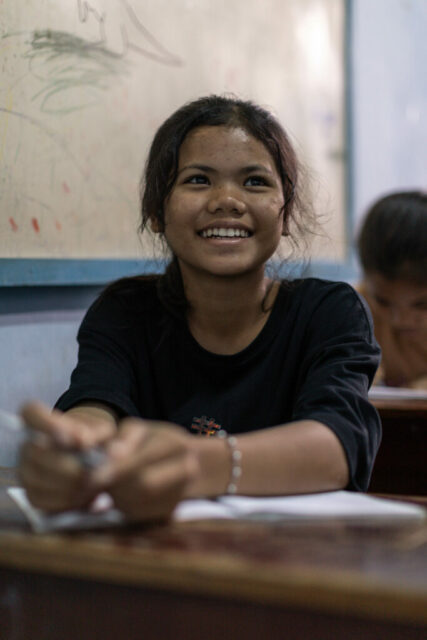
If you want to travel in Asia and give sense to your trip, get off the beaten track to find and enjoy more authentic experiences…. If you want to have a positive impact on the country you are visiting? Sponsoring a child and going to meet them is probably the best way to include your trip in an ethical, solidarity-based and long-lasting approach!
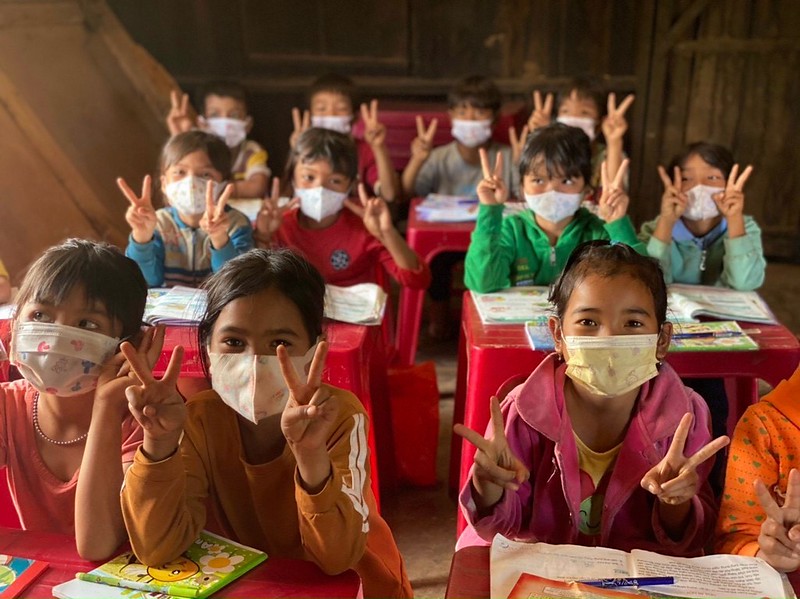

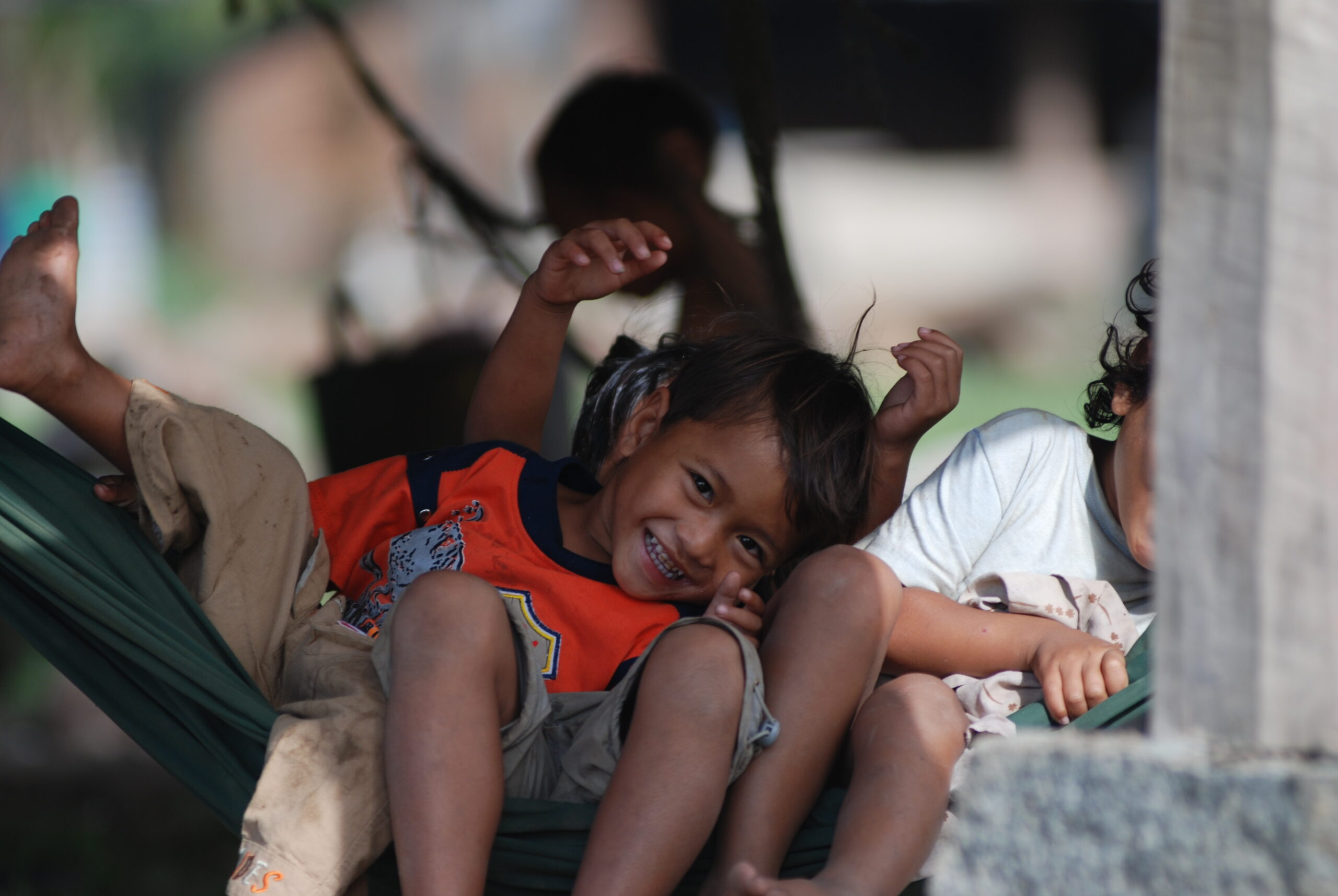
Closing the Gap: Boosting Healthcare Education Initiatives for a Healthier Vietnam
Author: Shi Xian Vietnam faces a notable funding gap in its healthcare education sector, impacting nonprofit organisations which play a crucial role in promoting […]
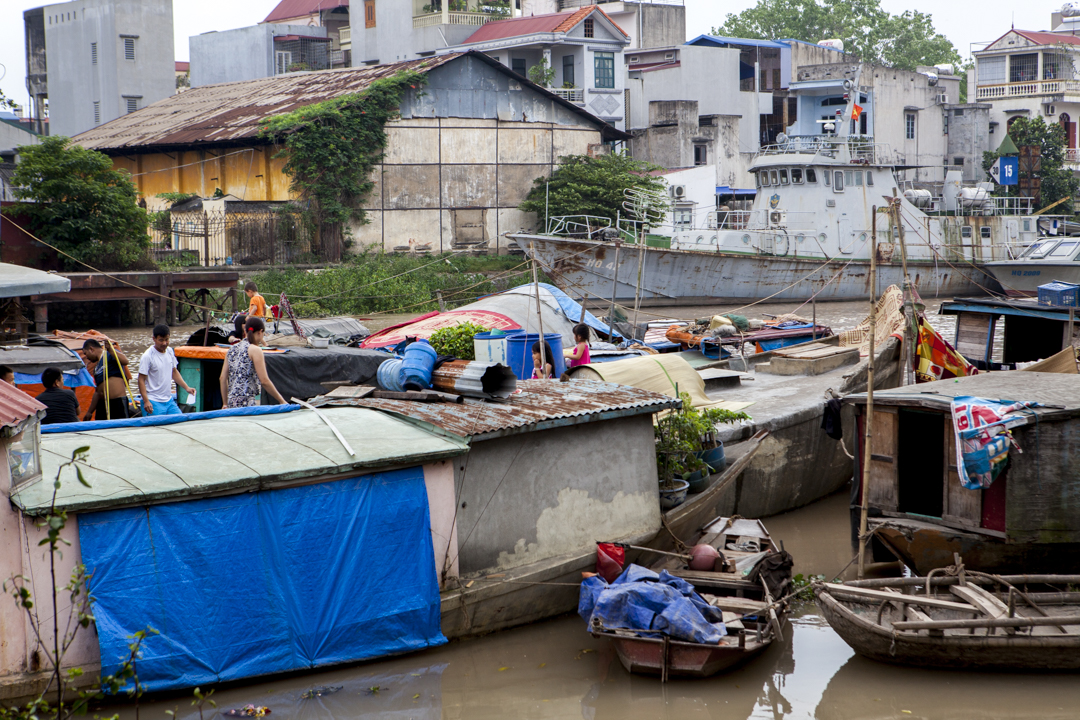
Transforming Deaf Education in Vietnam: The QIPEDC Project Success
(*QIPEDC: Quality Improvement of Primary Education for Deaf Children Project) Author: Shi Xian


